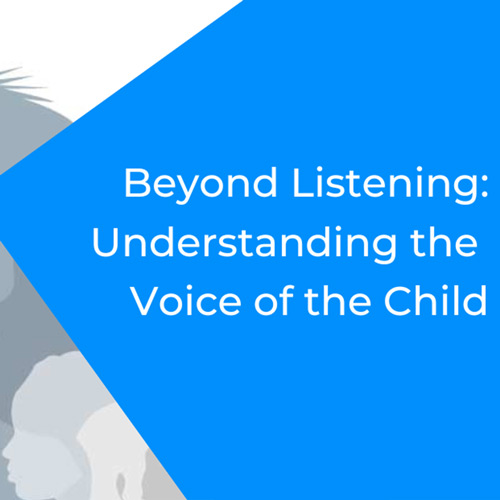Embed Ethics and Values Into Safeguarding Practice:
Contextual Safeguarding and The Student Voice
COURAGE
“Develop enough courage so that you can stand up for yourself and then stand up for somebody else.”
Maya Angelou
Are our communities safe for young people?
Courage. Our first value. Introduced last week through our first blog in this series. Consider the historic and documented serious case reviews in all of the major settings that involve young people in our society: schools, universities, the church, social care, sport, hospitals and charities.
Is our community safe for young people? How many instances of abuse could have been avoided if leaders had the courage to stand up and seek the authentic answer to this question, from the young people we are here to safeguard?
To authentically seek the answer from our communities and empower the young people to solicit honest responses requires courage from both our community leaders, to meaningfully ask the question, and for the children to safely respond.
As leaders responsible for the safety of the young people under our care, being courageous has to be a fundamental prerequisite for doing the job.
My NSPCC training taught me to have the courage to:
- Find out what the young people see as being risks to their safety
- Accept that my setting, along with everyone other setting, will have safeguarding issues to address
- Understand that if I am not busy and/or worried and concerned about young people then there is something wrong
- Own the issues my setting has (only when we have done this can we progress)
- Make sure that those responsible for making a difference know and understand all risks to safety and are acting on them
Get this blog series sent straight to your inbox each week.
Statistics on community issues and young people
For a young person to disclose any form of risk to their own safety or that of their peers takes immense courage and trust. Research suggests that students may be reluctant to share sensitive safeguarding issues with teachers face to face because their social conditions favour them to stay silent (Carlene Firmin 2017). Current data would seem to support this view:
KNIFE CRIME
- Knife crime hit a record high in England and Wales before the COVID-19 lockdown came into place – with police reporting 46,265 cases for the year to March. The recent report by the Office for National Statistics (ONS) said this was 51% higher compared to when the data was first collected in 2011 and up 6% from the previous year.
- Of the estimated 841,000 crimes experienced by 10-15 year olds in the year ending March 2019:
- 54% were categorised as violent offences.
- Of these offences, 19% were categorised as wounding, 56% were violence with minor injury and 25% were violence without injury.
- 27% were theft offences.
- 15% were criminal damage to personal property.
- 4% were robbery offences.
COUNTY LINES
- A county lines safeguarding alert has been issued to schools after a worrying spike in referrals nationally. Home Office figures for the April to June period show that referrals to the National Referral Mechanism – the system for identifying victims of modern slavery – more than doubled from 199 to 409. Of these, 346 (85 per cent) were for children.
- Children as young as seven have been linked to 2,000 drug-dealing county lines gangs estimated to be operating in towns and rural areas across the UK.
- The NCA said that offenders often approach victims before the age of 11 in order to build a relationship and trust – making county lines a safeguarding issue for both primary and secondary schools. The grooming techniques are similar to those we see in cases of sexual exploitation.
HARMFUL SEXUAL BEHAVIOUR
- Non-recent cases (where the abuse occurred 12 or more months prior to being reported) accounted for 34% of all sexual offences against children recorded by the police in the year ending March 2019.
- Assessments with a risk factor of child sexual abuse rose by 28% in the year ending March 2020 from the year ending March 2015 (from 23,800 to 30,460), and those with a risk factor of child sexual exploitation rose by over 50% in the same period (from 12,200 to 18,700).
- Covid-19 Pandemic: The NSPCC saw a threefold increase in Childline counselling sessions about child sexual abuse within the family between March and May 2020, from an average of eight sessions per week before the restrictions were imposed to an average of 23 per week. Over a quarter of Childline counselling sessions about sexual abuse within the family related to abuse that has happened recently. Between April and August 2020, NSPCC also saw an 11% increase in Childline counselling sessions about online sexual abuse, as well as a 60% increase in contacts from adults concerned about children experiencing online sexual abuse.
UNIVERSITY SEXUAL ASSAULTS
- The University of St. Andrews has been confronted with more than 100 posts on an Instagram account alleging incidents including sexual assault, harassment, rape as well as physical and emotional abuse.
- An estimated 50,000 incidents of sexual abuse or harassment take place in universitiesin England and Wales every year, according to research, which accuses the sector of failing to adequately address what is “fast becoming a public scandal”.
- Of the 4,500 students from 153 different institutions who took part in this survey, 62% have experienced sexual violenceat UK universities. This figure rises to 70% of female respondents, 48% of which have experienced sexual assault, and 73% of respondents with a disability, where 54% have experienced sexual assault.-
- Nearly a third of universities have used NDAs in student grievance disputes since 2016, including cases concerning sexual assault, bullying and lack of disability support. Involving £1.3m in payouts, these NDAs have been criticised as “legally questionable”by expert lawyers, and an “abuse of power” by the former universities minister Chris Skidmore.
- The University of Cambridge, for example, can truthfully report that it does not use NDAs – but when I made a complaint of harassmentas an undergraduate student, I was bound by a confidentiality rule that meant I was not able to disclose details of my complaint to anyone in my life, even after it was upheld. There was no signed legal document; but I was threatened with a possible charge of harassment if I spoke out.
Empowering the voice of our young people
The Student Voice has developed a contextual safeguarding information sharing tool that seeks to provide a safe platform and environment for community leaders and young people to understand and share concerns and worries. We are seeking to bridge the perceived communication gap by listening to young people and allowing communities to respond to their concerns effectively; with the overall aim being to proactively identify and intercept safeguarding issues, and to ultimately protect our students and provide them with a forum to play their part in this process.
Courage enables leaders to ask the question. Contextual Safeguarding and The Student Voice tool empowers young people to have the courage to share the answers we should all be looking for…….
Written by Jason Tait, Director of Pastoral Care and Designated Safeguarding Lead at TASIS The American School in England and Co-Founder of The Student Voice





